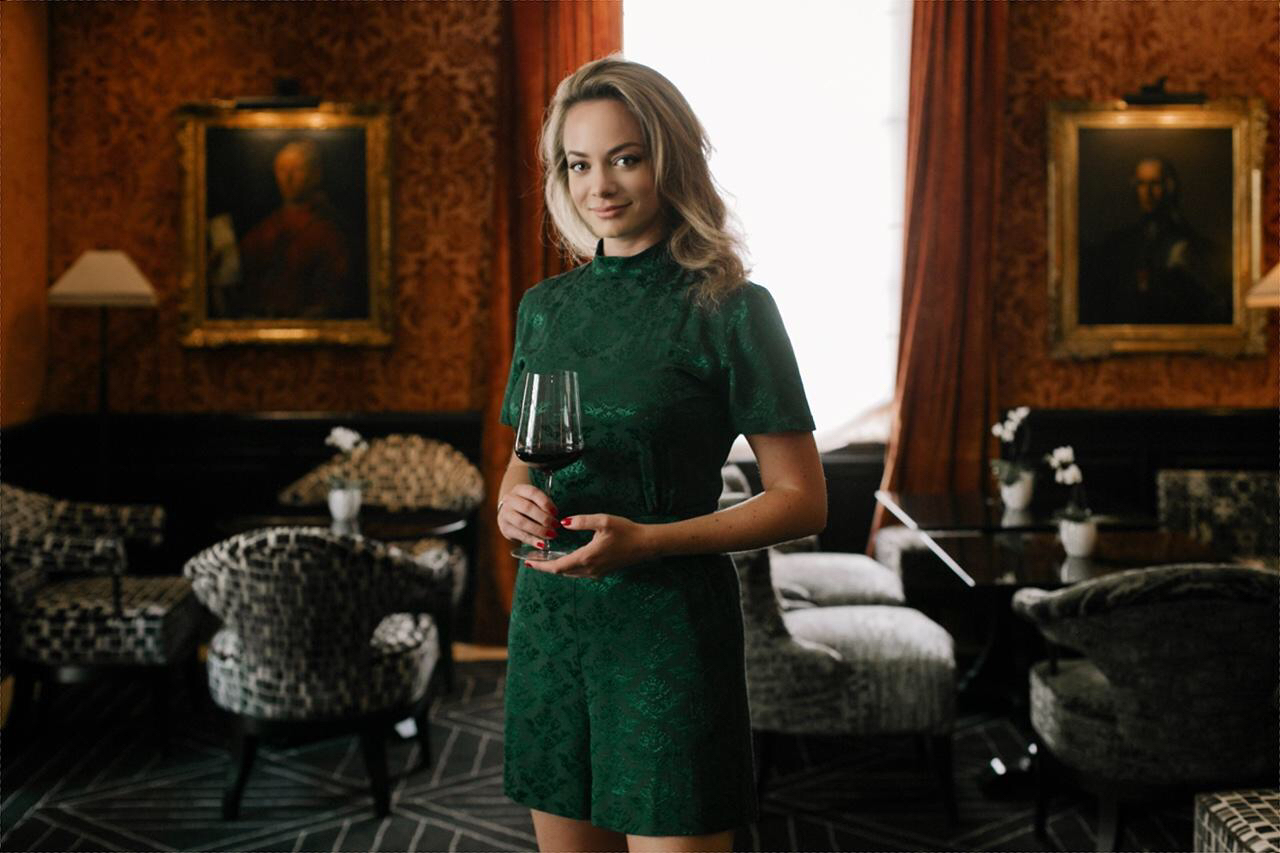Interview
Gabrielle Vizzavona

Expert in wines and liquors
13 September 2021
Speaker, she directs and animates masterclasses, tastings, and debates on the theme of wine.
Gabrielle Vizzavona, you are an expert in wines and spirits. Tell us about your journey.
I love wine since childhood. It is an environment that fascinates me. My grandfather was a winegrower and merchant, and wine has always been a part of my family. However, for my parents who are scientists, it was not a conceivable job. I started with studies in economics, I have a Masters in Finance and a Masters 2 in Public Economics. I worked for a few months as an inflation derivatives broker in London before realizing that it would never be for me, which I already had a strong feeling for. I then followed a 4-year training course on wine and spirits, which partially consisted of a world tour of the terroirs of 25 countries. It was important for me to take the time to understand this complex world of wine. I have three areas of activity today, and for more than ten years I have advised hotels, restaurants, and businesses on their wine and spirits selections, I give conferences (for companies, trade fairs, etc.) and courses on this theme (mainly in Master and MBA), and I am a newspaper and TV journalist.
You taste more than 5,000 bottles a year ... Do you manage to retain each flavor, each smell, and associate them with the corresponding wines?
Like taste, olfactory memory works like a muscle. It is this the one most directly connected to the primitive brain, reason why the memory of smells remains longer than visual or auditory ones. The difficulty in my job as a taster is to be able to last, meaning to still be able to judge the quality or the potential of a wine after a series of 40, 50, or more. It is not difficult to identify smells with a little practice. But despite everything, this remains quite subjective because it is linked to its culture and its taste education. I gave a conference on this theme a few years ago, for a great Bordeaux cooper: "How does our culture influence our taste?".
Trick question… What is the best wine you have tasted in your entire life?
A 1955 Vosne-Romanée from Domaine Leroy, in the company of Lalou Bize Leroy, the owner who is also heir to Domaine de la Romanée-Conti, over a lunch in her kitchen in Auxey-Duresses.
You are traveling the world: which countries have marked you the most?
In recent years, I have had a huge crush on Georgia, the birthplace of wine - fermented grape biomarkers have been found in jars dating back 8,000 years -. A fascinating country, where each family makes their own wine and which has the remarkable tradition of the “Toast Master”, of long family reunions where a succession of “Toasts” is led by the master of ceremonies. I also loved Iceland, for these breathtaking lunar landscapes. We don't produce wine here, but very high quality spirits.
You give conferences and advise companies. What are your intervention themes?
I work on various themes related to wine around the concepts of olfactory and taste perceptions, luxury and French craftsmanship (which viticulture expresses particularly well!). Of course, I can also set up guided tastings, which make the link between the company and the chosen theme. For example, I organized a tasting of champagnes for a cosmetics brand whose universe is linked to the sea. All the champagnes chosen expressed this salinity inherited from a terroir of more than one hundred million years, while a warm sea covered the landscapes and deposited chalk and marine sediments.
If you had the chance, what would you do to change the world?
I will make education and culture accessible to everyone. Without a doubt the best weapon of peace.

"It is the olfactory memory that is most directly connected to the primitive brain, which is why the memory of smells remains longer than visual or auditory ones"
If you could time travel, what advice would you give to the child that you were?
I will advise her to follow her hunches.
